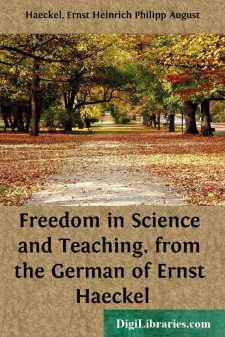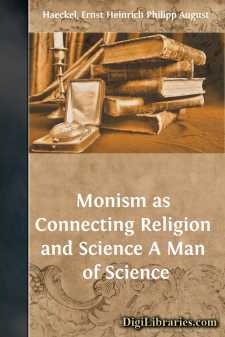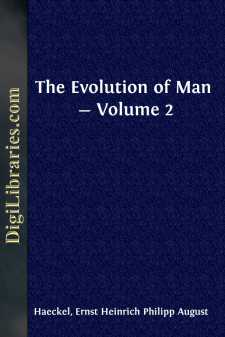Categories
- Antiques & Collectibles 13
- Architecture 36
- Art 48
- Bibles 22
- Biography & Autobiography 813
- Body, Mind & Spirit 142
- Business & Economics 28
- Children's Books 17
- Children's Fiction 14
- Computers 4
- Cooking 94
- Crafts & Hobbies 4
- Drama 346
- Education 46
- Family & Relationships 57
- Fiction 11829
- Games 19
- Gardening 17
- Health & Fitness 34
- History 1377
- House & Home 1
- Humor 147
- Juvenile Fiction 1873
- Juvenile Nonfiction 202
- Language Arts & Disciplines 88
- Law 16
- Literary Collections 686
- Literary Criticism 179
- Mathematics 13
- Medical 41
- Music 40
- Nature 179
- Non-Classifiable 1768
- Performing Arts 7
- Periodicals 1453
- Philosophy 64
- Photography 2
- Poetry 896
- Political Science 203
- Psychology 42
- Reference 154
- Religion 513
- Science 126
- Self-Help 84
- Social Science 81
- Sports & Recreation 34
- Study Aids 3
- Technology & Engineering 59
- Transportation 23
- Travel 463
- True Crime 29
Ernst Heinrich Philipp August Haeckel
Ernst Heinrich Philipp August Haeckel (1834–1919) was a German biologist, naturalist, philosopher, and writer who made significant contributions to the theory of evolution. He popularized Darwin's ideas in Germany and developed the concept of "ontogeny recapitulates phylogeny," which suggests that the development of an organism mirrors its evolutionary history. Haeckel also created detailed biological illustrations and wrote influential books like "The Riddle of the Universe" and "The Evolution of Man." He coined numerous biological terms, including "ecology" and "stem cell," influencing both science and philosophy.
Author's Books:
Sort by:
PREFATORY NOTE. In complying with the wish of the publishers of Professor Haeckel's reply to Professor Virchow, that I should furnish a prefatory note expressing my own opinion in respect of the subject-matter of the controversy, Gay's homely lines, prophetic of the fate of those "who in quarrels interpose," emerge from some brain-cupboard in which they have been hidden since my...
more...
PREFACE The following lecture on Monism is an informal address delivered extemporaneously on October 9, 1892, at Altenburg, on the seventy-fifth anniversary of the "Naturforschende Gesellschaft des Osterlandes." The immediate occasion of it was a previous address delivered by Professor Schlesinger of Vienna on "Scientific Articles of Faith." This philosophical discourse contained, with...
more...
The work which we now place within the reach of every reader of the English tongue is one of the finest productions of its distinguished author. The first edition appeared in 1874. At that time the conviction of man's natural evolution was even less advanced in Germany than in England, and the work raised a storm of controversy. Theologians—forgetting the commonest facts of our individual...
more...
In turning from the embryology to the phylogeny of man—from the development of the individual to that of the species—we must bear in mind the direct causal connection that exists between these two main branches of the science of human evolution. This important causal nexus finds its simplest expression in "the fundamental law of organic development," the content and purport of which we have...
more...





